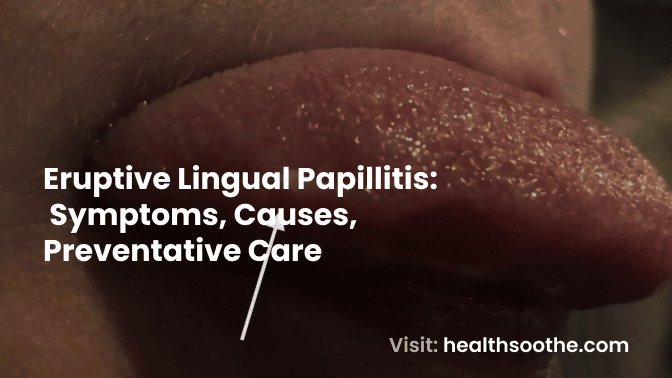Oral health isn’t just about a bright smile or fresh breath. It’s pivotal in your overall well-being, affecting everything from heart health to self-confidence. Preventative oral care encompasses a range of practices designed to prevent the onset and progression of dental issues, ensuring healthy teeth and gums throughout life. As such, understanding the fundamental aspects of oral health care is essential.
This article explores the essentials of preventative oral care.
Understanding The Basics Of Oral Health
The foundation of oral health begins with a basic understanding of the mouth’s anatomy. The mouth is home to various bacteria. While many of these are harmless, some can lead to tooth decay and gum disease if proper hygiene isn’t maintained. Plaque, a sticky substance that forms on teeth, is the main culprit behind many dental issues. If not removed, it can harden and become tartar, leading to more severe problems.
Moreover, understanding the importance of oral health can be confusing without the assistance of a dental professional. As such, a conversation with them can reinforce this importance. For instance, my Groton dentist told me that oral health goes beyond just brushing and flossing during a dental visit. They emphasize that it also involves regular checkups, a balanced diet, and understanding the risks of poor dental habits.
Essentials Of Preventative Oral Care
Having grasped the basics of oral health, let's delve into its essential practices.
1. Daily Brushing
Daily brushing plays a crucial role in keeping your teeth and gums healthy. But to ensure you do it right, choosing the right toothbrush is vital. Hence, look for a brush with soft bristles to avoid damaging the gums or enamel. Replace your toothbrush or the head for electric models every three to four months or sooner if the bristles are frayed.
Also, it’s essential to know that brushing techniques also matter. Use fluoride toothpaste and brush for at least two minutes, ensuring all surfaces of the teeth are adequately cleaned. Make small circular motions, holding the brush at a 45-degree angle to the gumline.
2. Flossing
Flossing, often underestimated, is as vital as brushing. It can remove food particles and plaque that a toothbrush can't reach. Therefore, it’s recommended to floss at least once a day. When flossing, ensure you’re gentle to avoid injuring your gums. Glide the floss between teeth using a zigzag motion and be sure to go beneath the gumline. This way, you can get the most out of flossing to prevent cavities and tooth decay.
3. Mouthwash
While not a substitute for brushing or flossing, mouthwash can offer additional protection against bacteria. For instance, a therapeutic mouthwash can help reduce plaque, fight bacteria, and freshen your breath. When selecting a mouthwash, look for one that’s ADA-approved to ensure it’s safe and effective in preventing bacteria.
4. Regular Dental Checkups And Cleanings
It’s recommended to visit a dentist at least twice a year for regular checkups and professional cleanings, which are fundamental aspects of preventative oral care. These visits allow for the early detection of potential issues like cavities, gum disease, and oral cancer.
Even with diligent brushing and flossing, it’s challenging to remove all plaque and tartar. Cleanings ensure your teeth are free from these harmful substances, and dentists also use this opportunity to check for signs of oral diseases.
5. Balanced Diet For Healthy Teeth And Gums
Consuming a diet rich in fruits, vegetables, lean proteins, and whole grains not only supports overall health but also plays a significant role in oral well-being. Calcium-rich foods like dairy products, fortified cereals, and leafy greens, for instance, can strengthen teeth. It's also crucial to limit sugary snacks and beverages, which can promote tooth decay. If you do indulge, consider brushing or rinsing your mouth shortly after.
6. Fluoride
Fluoride is a mineral that strengthens tooth enamel, making it less susceptible to decay. Most toothpastes and some mouthwashes contain fluoride. For those at a higher risk of tooth decay, a dentist might recommend a fluoride treatment.
7. Avoiding Tobacco And Limiting Alcohol
Both tobacco and excessive alcohol consumption pose significant risks to oral health. Smoking or using smokeless tobacco can lead to gum disease, tooth decay, and oral cancer. Alcohol, especially when consumed in large amounts, can also increase the risk of oral cancers.
8. Wearing Protective Gear
Protecting your teeth isn’t only about hygiene. If you participate in contact sports or recreational activities, it’s essential to wear protective gear, such as a mouthguard, to prevent dental injuries and protect your oral health in the long run.
9. Understanding The Impact Of Medications
Some medications can affect oral health, leading to dry mouth, gum swelling, or discoloration of the teeth. If you’re on any medication, discuss potential side effects with your healthcare provider or dentist and find ways to mitigate them.
Conclusion
Proactive and preventative oral care is a lifelong commitment. The rewards of healthy teeth and gums, a radiant smile, and enhanced overall health make the effort invaluable. Embrace the practices and information highlighted in this article to secure a brighter dental future.

